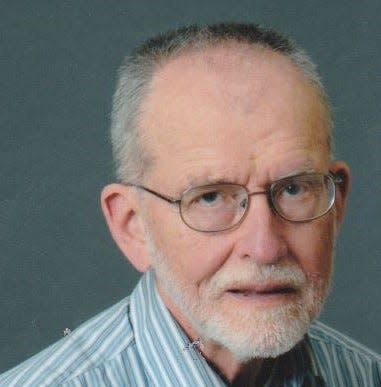Paul deLespinasse: Why assume liberal education is only for the young?
Higher education appears to be moving away from providing students with a "liberal" education. Although widely lamented, this trend may not be all bad.
"Liberal education" is not liberal in the political sense, but concentrates on critical thinking, good writing, historical perspective, and introductory acquaintance with a wide variety of human experiences.
A liberal education, sometimes described as "learning how to learn," provides few students with a clear path to specific jobs, but develops skills that are useful in virtually all kinds of jobs and other parts of life.

Many colleges and universities are now focusing more on preparing students for particular careers. Favored fields now include not only the STEM science and engineering fields, but also business, accounting, and computer science.
Moving towards early specialization at the expense of a broader general education may turn out to be harmful for some students. For example, so-called "artificial intelligence" (AI) may radically decrease future job opportunities in computer science, since AI systems themselves might do many programming jobs more rapidly and inexpensively than hiring people to do them. The same danger could also apply to specializing in any other "practical" field.
But it is understandable why higher education is moving in this direction. A college degree is vastly more expensive than when I was an undergraduate from 1957-1961. At Willamette University, a very good private institution, my tuition came to about $650 a year, which would be $6,691 in 2024 dollars. However current tuition there is about $48,000.
State universities, too, are much more expensive than during my undergraduate days.
For this kind of money, parents and students naturally seek degrees that will help land a well-paying job.
A broad liberal education is still very valuable. Instead of giving up on this idea, we need to broaden our concept of the ages for whom it is appropriate. We can no longer afford to assume that a liberal education must be only for college-age people.
In Corvallis, Oregon, where I now live, there is an Academy for Lifelong Learning (ALL). ALL organizes daytime lectures on a wide variety of topics for an audience consisting entirely of adults, most of whom are retired. Nearly all of our members are college graduates, and quite a few have advanced degrees, but we are all interested in continuing to learn.
Many other communities have similar opportunities for continuing education, and even in those that do not there are excellent opportunities online that are available for people of all ages. Often, these are provided at little or no cost by major universities.
One example: Stanford University's "Understand Energy Learning Hub," As you can see if you take a look, this site offers free reading and lectures covering a wide range of energy-related topics. It also includes many links to sources of insight and information about energy.
Since energy is related to every aspect of modern life, anyone who pursues the opportunities offered by this site will be getting many of the benefits of a broad, liberal education no matter how young or how old they might be. I can imagine gifted high school students benefiting along with middle-aged folks and octogenarians.
An education system in which college students focus on their main goal of preparing for gainful employment, while perhaps still getting some broader background, would not be all bad. Liberal education can continue throughout their lives, and will still be incredibly important.
No matter how we educate, we should never think of ourselves or anybody else as "educated." This implies that education is a terminal process that we can discontinue once we have arrived.
As the Corvallis Academy for Lifelong Learning's name suggests, learning ideally is lifelong. Lifelong learning is especially important in a world in which radical changes are always going on. Continuing liberal education should therefore benefit people of all political persuasions, be they liberal or conservative, young or old.
— Paul F. deLespinasse is professor emeritus of political science and computer science at Adrian College. He can be reached at pdeles@proaxis.com.
This article originally appeared on The Holland Sentinel: Paul deLespinasse: Why assume liberal education is only for the young?
